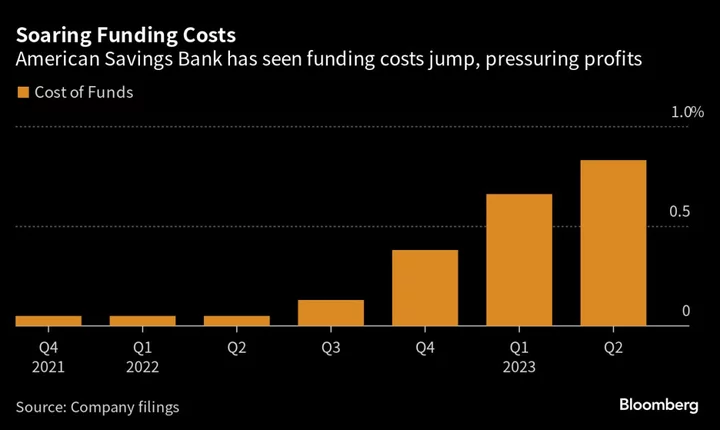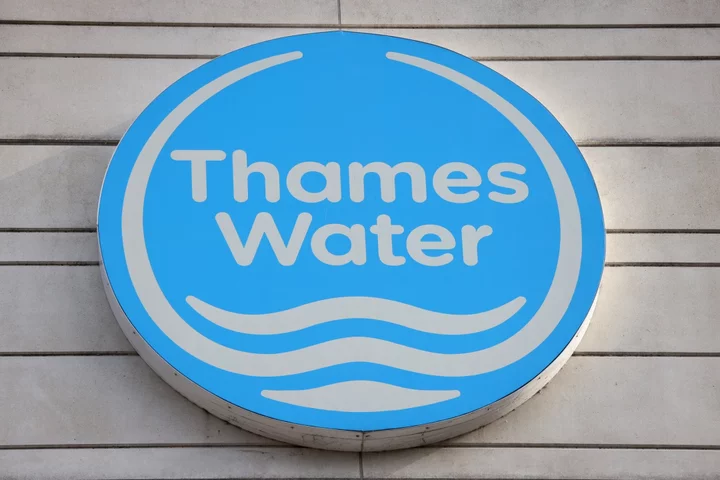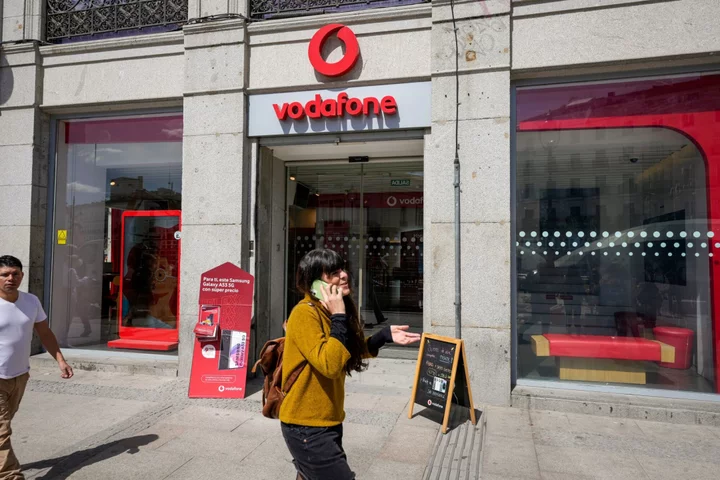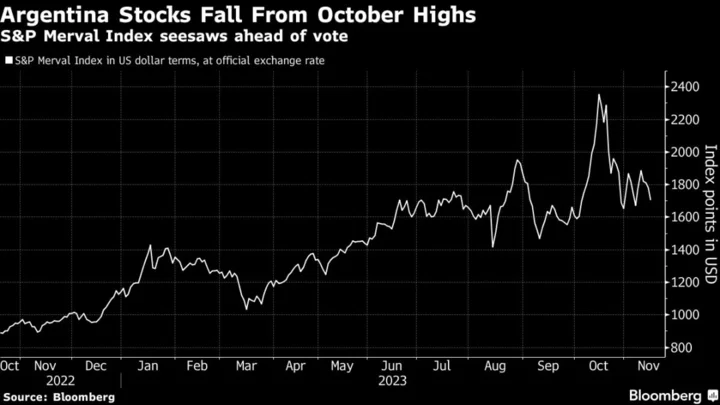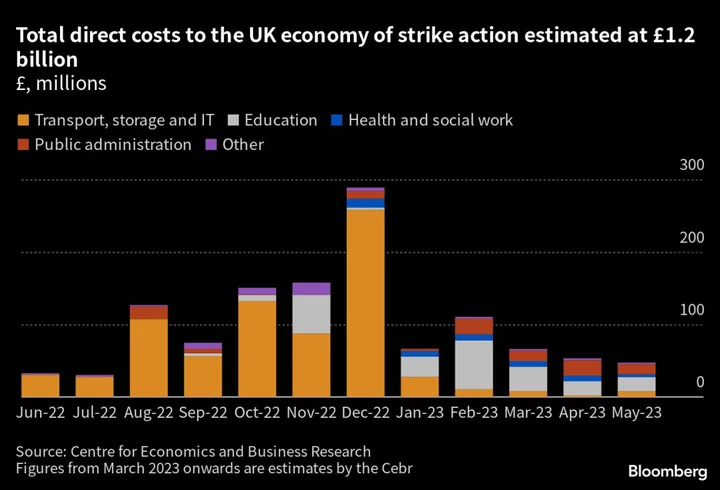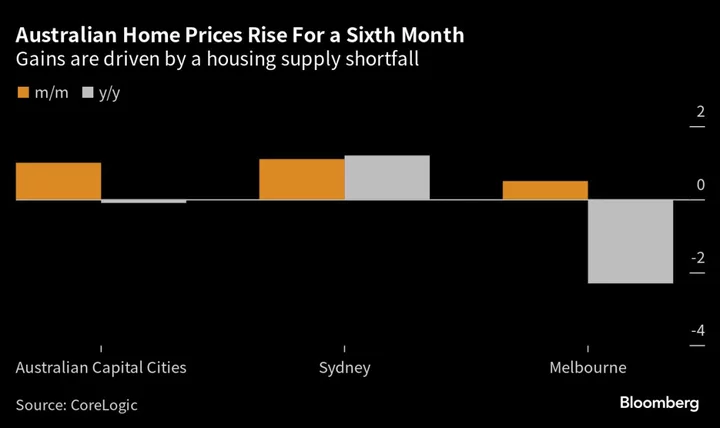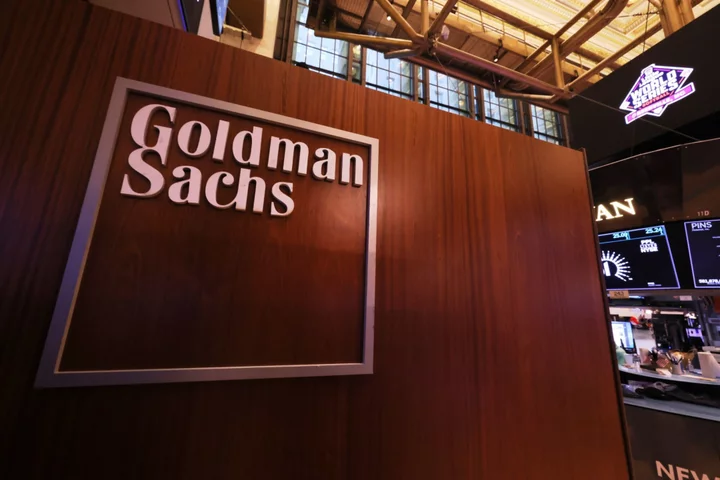Hawaii’s biggest utility has lost half its market value in the wake of deadly wildfires on Maui that might expose it to massive liability costs. The catastrophe adds to financial pressure already weighing on one of its key units.
Hawaiian Electric Industries Inc. owns and operates American Savings Bank FSB, which has been grappling with this year’s turmoil in the regional-banking industry. Worse-than-expected results from the company’s banking division, which generates about 25% of operating income, led Hawaiian Electric to cut its earnings-per-share forecast for this year to $2.00 to $2.10, down from the $2.15 to $2.35 range it previously expected.
The more pessimistic guidance was announced the day before fires claimed the lives of more than 100 people on Maui.
ASB was already seeing pressure on deposits as customers grapple with higher inflation and flee for better yielding alternatives. The wildfire may add to those woes and force the bank to set aside more in provisions for bad loans, according to Jonathan Reeder, an analyst at Wells Fargo & Co.
“While potential liabilities from the wildfires would not fall to the bank, we believe there could be tangential impacts in the event the utility is found liable due to negligence,” Reeder said, noting Hawaiian Electric is the only publicly traded US utility company to own a bank. “Customers could elect to withdraw funds from the bank given its association with Hawaiian Electric.”
Hawaiian Electric Industries’ market value plummeted as lawyers and analysts scrutinize whether equipment owned by its utility, which supplies power to 95% of the state’s residents, could have sparked the conflagration. Investigators haven’t declared an official cause of the fire, which was the deadliest in the US in more than a century.
Read More: Maui Death Toll Tops 100 as Investigators Work to ID Victims
ASB, Hawaii’s third-largest bank, is one of the few that operate a branch in Lahaina, a seaside town destroyed by the flames. The company told customers that while it has visually verified that the vault where safe deposit boxes are located survived the fires, it won’t be able to assess the condition of the contents of the boxes until it’s allowed back in. Customers whose businesses were destroyed were advised to contact the Federal Emergency Management Agency.
American Savings Bank, with $8 billion in deposits and dozens of branches across the state, can trace its roots to 1925 in downtown Honolulu. The division, led by by Chief Executive Officer Ann Teranishi, uses a kalo leaf in its branding, highlighting an important plant in Hawaiian culture and a dietary staple for many state residents.
“Our hearts go out to the Maui community and everyone who has been impacted by the recent wildfires,” the company said on its website. “American Savings Bank is committed to assisting and supporting our customers and community during this challenging time.”
A representative for Hawaiian Electric Industries didn’t respond to a request for comment.
About 11% of ASB’s deposits come from customers on the island of Maui, the biggest share of any local competitor, according to an analysis by Raymond James Financial Inc. The lender’s five branches on the island represent about 13% of the company’s total, the analysis found.
Still, the response to the disaster may provide the bank with some short-term relief.
“Hotels in the region may see occupancy increase due to out-of-town first responders deployed to the areas,” Raymond James said in a note to clients. “Additionally, these types of events often drive an influx in deposits from insurance/government assistance, and banks also provide low-rate disaster relief loans to those affected, which can stimulate the local economy and the recovery.”

